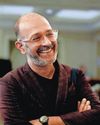India’s newly-formed space, cyber and special operations units will help the armed forces become lean and lethal

A TEAM OF 25 US Navy SEALs took just 40 minutes to carry out the secret mission that killed the world’s most wanted terrorist. On the night of May 2, 2011, SEAL Team Six flew in on two stealth helicopters into the garrison town of Abbottabad in Pakistan, and raided Osama bin Laden’s house. The world came to know of the operation only the next day.
Very few countries have the ability to carry out such high-precision hits. Soon, India will be one of them, as it is preparing to raise a special operations unit to neutralise high-value targets. The Union government has green-lighted a tri-service Special Operations Division, a unit on the lines of the US Special Operations Command.
Major Gen A.K. Dhingra of the 1 Para (Special Forces) has been appointed as the SOD’s first commander. Dhingra, who was part of the Indian Peacekeeping Force in Sri Lanka, will draw manpower from the special forces of the Army, the Marine Commandos (MARCOS) of the Navy, and the Garud commando force of the Air Force. Besides the SOD, the government has also initiated the formation of tri-service commands to manage space and cybersecurity operations.
But defence analysts believe the measures are not adequate. “Our adversaries, especially China, continue to build major capabilities in cyberspace, space and special operations, and propagate non-contact warfare,” said Lt Gen Vinod Bhatia, former director-general of military operations.
Diese Geschichte stammt aus der June 09, 2019-Ausgabe von THE WEEK.
Starten Sie Ihre 7-tägige kostenlose Testversion von Magzter GOLD, um auf Tausende kuratierte Premium-Storys sowie über 8.000 Zeitschriften und Zeitungen zuzugreifen.
Bereits Abonnent ? Anmelden
Diese Geschichte stammt aus der June 09, 2019-Ausgabe von THE WEEK.
Starten Sie Ihre 7-tägige kostenlose Testversion von Magzter GOLD, um auf Tausende kuratierte Premium-Storys sowie über 8.000 Zeitschriften und Zeitungen zuzugreifen.
Bereits Abonnent? Anmelden

Circle of influence
The circle of influence is not an isolated one. It is etched by myriads of experiences, relationships and learnings that we amass, helping us address tectonic shifts in life.

people
Andrew Garfield and Shraddha Kapoor was a cross-pollination waiting to happen.

Women riders and drivers
I am honestly surprised at how little interest the rest of India has in the Himalayan region in general. Right from Kashmir and Ladakh to Himachal, Uttarakhand and the northeast-these areas are filled and fueled by their own unique stories and histories, but are almost foreign to the rest of us.

The 'made in heaven' couple
Sobhita Dhulipala won countless hearts-and broke a few-when she married actor Naga Chaitanya at a hyper traditional Telugu Brahmin ceremony, where every ritual was scrupulously followed.

Raj Kapoor's socialism was Nehruvian
No other Indian actor or director was as popular in Russia, Eastern Europe and China as Raj Kapoor was.

The world is his canvas
Kochi-Muziris Biennale curator Nikhil Chopra views his new role as an evolution of his artistic practice to that of a collaborator

A FORGOTTEN ROAD
William Dalrymple's new book traces ancient India's role in spreading ideas and religions across the world

TALES FROM THE TOURS
India lost one match after another in this competition, except against East Africa.

We should not play Pakistan at all
If Mohinder Amarnath's life was a movie, it would be a franchise with too many sequels to count. He describes it as a 'Hitchcock thriller.

Merry Christmas and all that
You have a shell-shocked car, but Hukum has a fine bum,\" said the missus in a muffled voice.